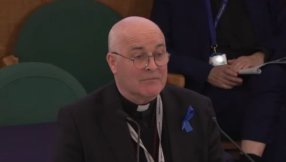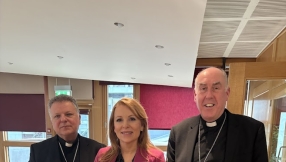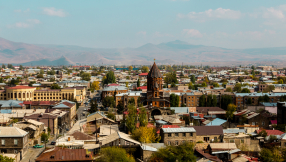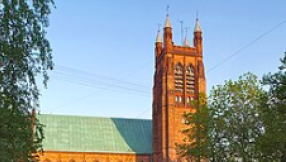Draft Anglican Covenant tries to balance autonomy and unity
The St Andrew's draft was drawn up by members of the Covenant Design Group when it met at St Andrew's House in London at the end of last month.
It attempts to uphold the autonomy of the 38 provinces of the Anglican Communion whilst at the same time asking for their voluntary commitment to a process of joined-up deliberation whenever disputes occur over contentious issues.
This is particularly the case where actions "either proposed or enacted... are deemed to threaten the unity of the Communion and the effectiveness or credibility of its mission, and to consent to the following principles and procedural elements", the draft covenant states.
If the document is accepted, provinces must also state their willingness to "receive from the Instruments of Communion a request to adopt a particular course of action in respect of the matter under dispute".
The covenant mentions, however, that the request is not binding on a church and does not set out at this point the possible consequences of refusing to carry through the requested course of action.
Instead, it stops at stating that a refusal on the part of the church to adopt the request would be understood "as a relinquishment by that Church of the force and meaning of the covenant's purpose, until they re-establish their covenant relationship with other member Churches".
The head of the Anglican Covenant Design Group, the Archbishop of the West Indies, the Most Rev Drexel Gomez, was positive about the outcome of the London meeting and hopeful that the document could cement relations between members of the Anglican Communion.
"My cup is half full as opposed to half empty," he said. "I think schism can be avoided but I think it depends on the willingness of parties involved to sit down and discuss the proposals and attempt to come to a common mind."
A number of high level clergy have already indicated they will not be coming to the 10-yearly Lambeth Conference when it takes place in London this July, including most recently the Archbishop of Sydney, the Most Rev Peter Jensen.
Archbishop Jensen is among a number of prominent Anglican leaders who will instead be heading to Israel just six weeks ahead of Lambeth for the Global Anglican Future Conference (GAFCON).
GAFCON is an alternative conference for conservative leaders who are upset that some parts of the Communion are turning away from the traditional biblical view of sexual ethics, which maintains that homosexuality is a sin.
In a statement issued on Monday, Archbishop Jensen explained to the members of his Sydney Diocese why he would not be joining Lambeth.
"In 1998, the Lambeth Conference made it clear that the leaders of the overwhelming majority of Anglicans world-wide maintained the biblical view of sexual ethics - that sexual relationships are reserved for marriage between a man and a woman," he wrote.
"Five years later, however, actions were taken in Anglican Churches both in Canada and the United States of America which officially transgressed these boundaries in defiance of the Bible's authority.
"It is now clear that we will never go back to being the Communion which we once were. There has been a permanent change. We live in a new world."
Archbishop Jensen stressed that the Anglican Future Conference was not trying to take the place of Lambeth but was instead being held to provide a space for biblical Anglican Christians to come together for "urgent consultation".
"It seeks to plan for a future in which Anglican Christians world-wide will increasingly be pressured to depart from the biblical norms of behaviour and belief," he said. "It gives an opportunity for many to draw together to strengthen each other over the issue of biblical authority and interpretation and gospel mission."
Archbishop Gomez, who is himself a conservative, admitted that he had not expected all those invited to Lambeth to turn out for the conference.
"I don't think it will be a full house," he said. "Sydney have said they will not come. But I think it will be sufficiently full to represent the mind of the Communion."
He also remained positive about the contribution that the covenant will make to ongoing efforts to preserve unity within the Anglican Communion.
"I am a positive person by nature and I believe that what we have produced is a good starting point," said Archbishop Gomez.
The latest draft covenant has now been offered to the provinces for wider reflection until the Lambeth Conference.
Archbishop Gomez urged his fellow Anglican leaders to consider the document and join in Lambeth as a means to hashing out a path towards unity.













